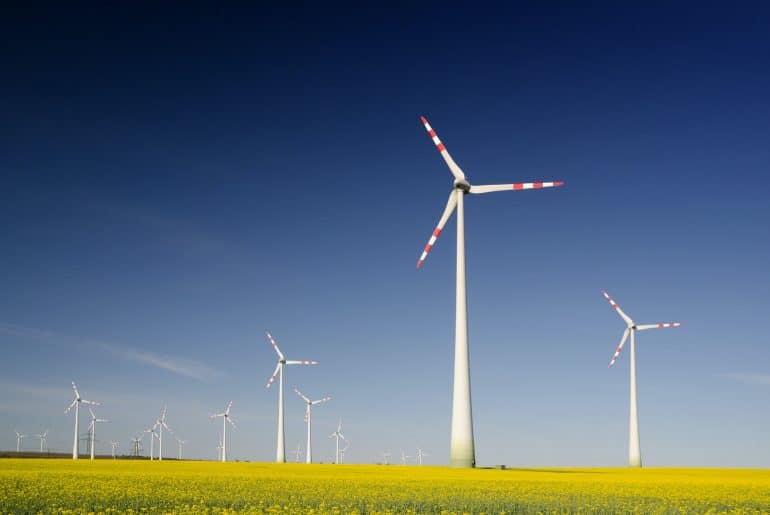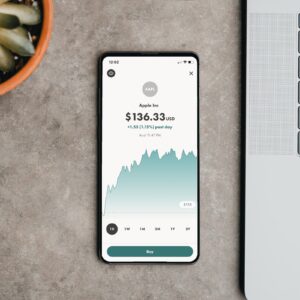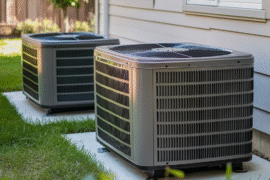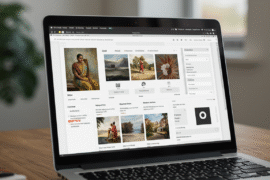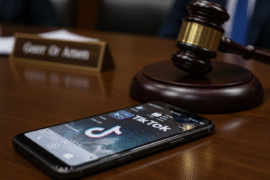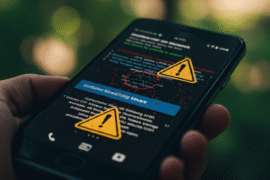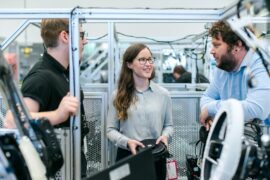This article may contain references to products or services from one or more of our advertisers or partners. We may receive compensation when you click on links to those products or services. Nonetheless, our opinions are our own.
The information presented in this article is accurate to the best of our knowledge at the time of publication. However, information is subject to change, and no guarantees are made about the continued accuracy or completeness of this content after its publication date.

Updated by Albert Fang
Science is pleading with society to switch to clean and renewable energy before it has an irreversible impact on the environment, and it seems like a new dire warning about the environment is being issued almost daily. Homeowners who are concerned about the environmental impact of the energy they use may feel some guilt about purchasing it from a source that generates it in an unclean manner, such as burning fossil fuels. The installation of solar panels and the purchase of electricity from sources that generate wind turbines, solar panels, or hydroelectric facilities are two examples of how we are beginning to see a shift with homeowners in the same way we are seeing in automobiles with the push towards electric cars.
But what if you don’t live in a place where you have access to these resources? Even with tax incentives, what happens if you can’t afford to put solar panels on your house? With traditional power companies still in business, what can you do to reduce your environmental footprint? Arcadia Power comes into play in this situation. By purchasing credits from renewable energy sources, customers not only support a burgeoning industry, but they can also power their homes at the same time. So how does Arcadia work? Read on to learn more.
How does Arcadia power work?
Arcadia review editorials state that Arcadia Power promotes itself as a source of renewable energy for homes no matter where you live. Customers of Arcadia have the option of purchasing credits from solar and wind farms that produce electricity in other parts of the country. Arcadia Power purchases “renewable energy credits” (RECs) from companies that generate electricity using green technology, and the customer then purchases these RECs from Arcadia.
Customers of Arcadia Power will continue to use the same energy sources as those of their local utility company. Your local utility company’s carbon-emitting “dirty” energy can be offset, however, by purchasing your electricity through Arcadia Power. Overall, Arcadia Power is a tool for increasing demand for environmentally friendly electricity. As a result, the grid’s overall energy mix is improved.
What is community solar?
When you think of solar power, you probably think of panels on the roof. Maybe you’ve even thought, “That seems great, but I don’t think I can do it.” Well, we have good news: you don’t need a big house adorned with glossy solar panels to enjoy the benefits of solar energy. With community solar, anyone — as long as you pay a power bill — can go solar.
Community solar is a way to support solar energy and save on your power bill without installing your own solar panels. Instead, you join a local solar farm. Your neighbors and area businesses can join, too. These solar farms are often built on unused land, but they can also be in people’s backyards or on community buildings.
Because the panels are housed elsewhere, anyone can join a community solar farm. Compare that to rooftop solar, which is only an option for one-third of US homes.
And nothing changes about how you get your energy. Your same utility company delivers it like normal, so you never have to worry about interruptions in service.
Voted "Best Overall Budgeting App" by Forbes and WSJ
Monarch Money helps you budget, track spending, set goals, and plan your financial future—all in one app.
Get 50% OFF your first year with code MONARCHVIP
The process
When you open an account with Arcadia Power, they assume responsibility for your utility bills. For every kilowatt-hour you use, you pay Arcadia Power, which in turn pays your local utility company. Your monthly electric bill will be slightly higher because Arcadia Power adds 1.5 cents per kilowatt-hour to your regular bill. However, what you’re doing in the interim is funding the growth of the renewable energy market when Arcadia buys RECs from renewable energy sources. For most Arcadia customers, the additional monthly fee is worth it because it rarely exceeds $5 or $10.
Arcadia’s customers can also take advantage of some online tools to better understand the environmental impact of their energy usage. In order to keep track of their power usage and the credits they’ve accrued for using “dirty” electricity, customers can access a dashboard online. Customers appreciate being able to see patterns in their own energy usage and make adjustments as needed. As a result of this, some customers may even end up saving money by discovering where they are overusing electricity and making these adjustments in their power consumption, if you are wondering “how does Arcadia work to help save money?”
Summary
To summarize, Arcadia Power’s business model allows virtually anyone in the United States to pay to get their power from renewable sources like solar and wind while still using their local utility to power their homes. For now, this may be a good way to conserve the environment while reducing the demand for fossil fuels on the electricity grid.
As a result of Arcadia’s many advantages, according to many Arcadia review articles, speak of its widespread availability across the United States, online tools that allow consumers to see their energy consumption habits in order to make cost-saving changes, and payment towards renewable energy, demand for green energy sources is increased, which this leads to further development of the industry.
But there are disadvantages as well. Because it offsets your home’s fossil-fuel energy consumption by paying for renewable sources elsewhere, the service does not directly deliver renewable energy to the home. Also, there’s no guarantee that the service will save you money on your monthly energy bill; in fact, it may end up costing you a little more.
Although Arcadia Power is not a direct energy supplier or generator of electricity, it is a unique business model that allows consumers to exchange energy credits and renewable energy to offset the electricity they use from dirty sources.
More of these kinds of businesses are almost certainly on the way.
FAQ
1. What is the source of Arcadia’s power supply, and where does it come from?
It’s likely that your utility company will continue to supply you with energy that comes from coal, oil, and gas. Arcadia works by assuming your utility bill from your previous company. Rather than paying your local power company, you pay Arcadia Power each month, and you purchase energy credits that come from Arcadia, investing your payment into renewable sources from solar and wind farms located outside your local area. Additionally, your local utility company receives payment from them for the energy that you consume. A portion of your bill goes toward solar and wind energy, which increases the demand for these resources.
2. What are Renewable Energy Credits?
Because of the high cost of producing renewable energy with current technology, only about 17% of our energy in the grid comes from renewable sources. Until we have the infrastructure in place to generate long-term clean energy, it will be much more cost-effective to continue to use conventional energy. The demand for clean energy by consumers will contribute to the development of this infrastructure.
By paying more for their electricity, consumers and businesses are able to contribute to the growth of renewable energy generation by purchasing Renewable Energy Credits (RECs). One renewable energy certificate is issued for every megawatt-hour of clean energy produced by a wind farm or solar panel.
It is then possible to resell the renewable energy certificate itself, which is how Arcadia operates. Buyers and producers benefit from this because it enables the buyer and producer to demonstrate that their money is directly supporting clean energy, rather than fossil fuels. Consequently, you will continue to use the same electricity provider and power source as before once you become an Arcadia customer.

Reviewed and edited by Albert Fang.
See a typo or want to suggest an edit/revision to the content? Use the contact us form to provide feedback.
At FangWallet, we value editorial integrity and open collaboration in curating quality content for readers to enjoy. Much appreciated for the assist.
Did you like our article and find it insightful? We encourage sharing the article link with family and friends to benefit as well - better yet, sharing on social media. Thank you for the support! 🍉
Article Title: Arcadia Review: How Does Arcadia Work to Use Renewable Energy to Power Your Home?
https://fangwallet.com/2022/03/11/arcadia-review-how-does-arcadia-work-to-use-renewable-energy-to-power-your-home/The FangWallet Promise
FangWallet is an editorially independent resource - founded on breaking down challenging financial concepts for anyone to understand since 2014. While we adhere to editorial integrity, note that this post may contain references to products from our partners.
The FangWallet promise is always to have your best interest in mind and be transparent and honest about the financial picture.
Become an Insider

Subscribe to get a free daily budget planner printable to help get your money on track!
Make passive money the right way. No spam.
Editorial Disclaimer: The editorial content on this page is not provided by any of the companies mentioned. The opinions expressed here are the author's alone.
The content of this website is for informational purposes only and does not represent investment advice, or an offer or solicitation to buy or sell any security, investment, or product. Investors are encouraged to do their own due diligence, and, if necessary, consult professional advising before making any investment decisions. Investing involves a high degree of risk, and financial losses may occur including the potential loss of principal.
Source Citation References:
+ Inspo
